detail profile iraj raminfar

Iraj Raminfar
ایرج رامینفر
atau dikenal sebagai
Riwayat Hidup
Iraj Raminfar is a Persian art director, production designer, and costume designer.
He graduated in art directing from FDA and studied architecture in France.
He began working in the cinema with Stranger and Fog.
As one of the most prominent art directors, he has published a book based on his experiences.
Info Pribadi
Peran Yang Di Mainkan Iraj Raminfar
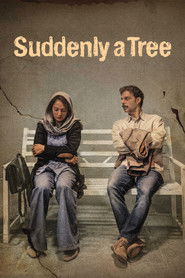 Farhad tells the story of his...
Farhad tells the story of his...Suddenly a Tree 2019
Farhad tells the story of his life to a psychiatrist. In the time of the Iran-Iraq War, Farhad is arrested and charged with illegal migration. When he is freed years later, he goes to his old love, Mahtab. Through conversations with his psychoanalyst and interrogations with the police, Farhad reveals the story of his life.
 A woman comes back from Paris...
A woman comes back from Paris...What's the Time In Your World? 2015
A woman comes back from Paris to her country after a long time. She meets a man that she hardly knows, but he knows a lot about her life.
 Chakameh who has lost both her...
Chakameh who has lost both her...When We Are All Asleep 2009
Chakameh, who has lost both her husband and child in a car accident, meets a guy who was recently released from prison. While she is under pressure from lawyers to compromise with the arrested driver, the guy tells her his story of his arrest and subsequent release from prison.
 From Afar traces the malaise of...
From Afar traces the malaise of...From Afar 2006
"From Afar" traces the malaise of a young artist and intellectual in three episodes: Book Burning, Breathing and Dawn. The Young protagonist lives in contemporary Tehran and he appears as a film student, an asthmatic businessman and a successful architect. In each story, he journeys toward a spiritual insight or emotion.
 In her second narrative feature Karimi...
In her second narrative feature Karimi...A Few Days Later... 2006
"In her second narrative feature, Karimi presents a gorgeous minimalist portrait of a woman crushed by indecision. At first it seems that graphic designer Shahrzad (played by Karimi) goes about her daily life with placid ease, but her surface stillness masks a maelstrom of weighty decisions she desperately wishes to avoid making." - Persian Film Festival Australia
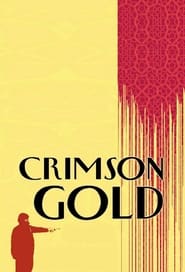 Pizza man Hussein is a daily...
Pizza man Hussein is a daily...Crimson Gold 2003
Pizza man Hussein is a daily witnesses to the unjust distribution of wealth in his native Iran. One day, he finds a purse filled with shockingly expensive receipts from an upscale jewelry store. He attempts to bring the purse back to the store, but because of his working-class attire, he's not allowed inside. Then, during a delivery, a rich man invites Hussein into his extravagant mansion – an event that spurs Hussein to make a desperate bid for wealth.
 Golrokh an Iranian author struggles to...
Golrokh an Iranian author struggles to...Killing Mad Dogs 2001
Golrokh, an Iranian author, struggles to settle her husband's debts caused by a business partner who left him to bear the consequences.
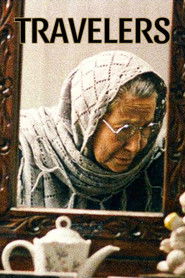 A young womans wedding becomes a...
A young womans wedding becomes a...Travelers 1992
A young woman's wedding becomes a ritual of mourning when her sister and family die in an auto accident on the way to the wedding. The sisters' mother refuses to accept her daughter's death, and in the midst of wedding guests and mourners, including the drivers of the truck that caused the accident, she orders the wedding to take place. But how can the daughter marry in the midst of a wake and without the family's traditional mirror, which the sister was bringing to the service?
 During the IranIraq War Bashu a...
During the IranIraq War Bashu a...Bashu, the Little Stranger 1991
During the Iran-Iraq War, Bashu, a young boy loses his house and all his family. Scared, he sneaks into a truck that is leaving the area. He gets off the truck in the Northern part of the country, where everything from landscape to language is different. He meets Naii, who is trying to raise her two young children on a farm, while her husband is away. Despite cultural differences, and the fact that they do not speak the same language, Bashu and Naii slowly form a strong bond.
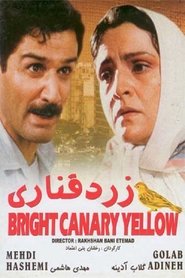 After spending all his money buying...
After spending all his money buying...Canary Yellow 1989
After spending all his money buying a piece of land that was already sold to someone else, Nasrallah Madadi finds himself in trouble. To solve his money problems, he then decides to be the offender of fraud rather than its victim. Getting himself involved with a pair of criminals, he begins a crooked business selling a same yellow taxi to different buyers, only to steal it back from them and sell it again. In a fascinating portrayal of human nature, Canary Yellow follows Nasrallah through the ups and downs of his double-sided experience of crime. But will it all end with the better life for his family he hopes for?
 Famed actress Susan Taslimi plays three...
Famed actress Susan Taslimi plays three...Maybe Some Other Time 1988
Famed actress Susan Taslimi plays three roles here: Kian, who doubts her identity; Vida, the twin sister, a self-assured artist; and their mother, who gives up one child out of fear of poverty, then deprives the other of affection because she deeply regrets the child whom she has abandoned.
 Bahram Beyzais poetic imagining of the...
Bahram Beyzais poetic imagining of the...Death of Yazdgerd 1982
Bahram Beyzai's poetic imagining of the circumstances that led to the death of Yazdgerd III, the last of the Sassanid kings of Iran. His death in 651, during the Arab invasions that brought Islam to this Zoroastrian realm, was mysterious: his corpse was discovered in a mill, but the cause of his death—and the whereabouts of his remains—are unknown.
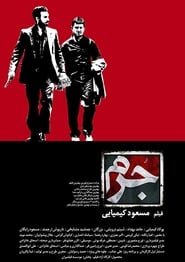 Between years 197679 in Tehran the story...
Between years 197679 in Tehran the story...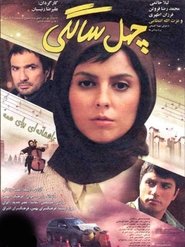 Negar is a married woman who...
Negar is a married woman who...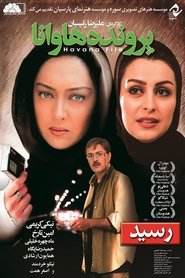 A scientist has to face many...
A scientist has to face many...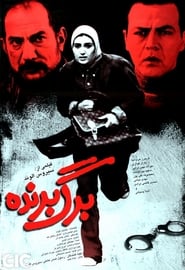 The manager of a successful travel...
The manager of a successful travel...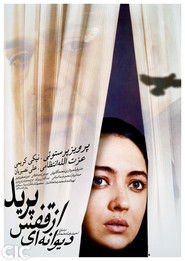 Yalda is married to Rouzbeh who...
Yalda is married to Rouzbeh who... A young man suffering from loss...
A young man suffering from loss...